Indigenous grads celebrated as ‘leaders, healers and advocates’
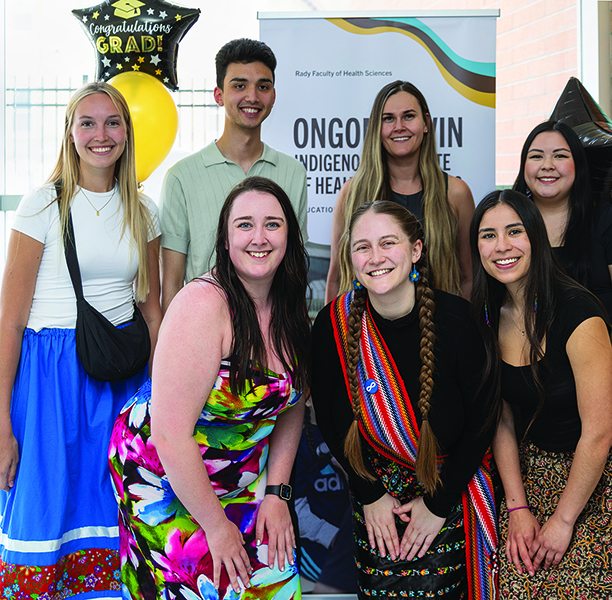
Naomi Peters [MD/25] was proud to cross the UM Convocation platform on May 15 to receive her degree in medicine.
But for Peters, who is Métis, it was also deeply meaningful to attend an earlier celebration that honoured Indigenous graduates of Rady programs as “leaders, healers and advocates for our communities.”
The gathering was held by Ongomiizwin – Education, part of the Indigenous Institute of Health and Healing in the Rady Faculty of Health Sciences.
Ongomiizwin – Education serves as a welcoming place for Indigenous students enrolled in UM’s health professional programs. It provides supports and resources to help students achieve their academic potential and graduate into health careers.
Peters expressed gratitude to her Indigenous peers and the Ongomiizwin team.
“You gave me a deep sense of belonging,” she said. “There would always be an open door, a hug, someone willing to listen, someone willing to share your knowledge.”
There are Indigenous grads in 2025 from nearly every Rady program, organizers said, including dentistry, medicine, nursing, physician assistant studies, physical therapy, occupational therapy and interdisciplinary health.
Project aims to uncover genetic blueprint of the Prairies
Over the next four years, a UM-led initiative called PrairieGen will enable researchers to analyze the DNA of more than 3,000 people in Manitoba and Saskatchewan.
The project, announced in March, aims to identify genetic markers linked to diseases such as cancer, multiple sclerosis and inflammatory bowel disease.
The non-profit Genome Prairie announced a $7.2-million investment in PrairieGen through Genome Canada (the federal non-profit that supports genomics research) and other partners.
The initiative is co-led by Dr. Cheryl Rockman-Greenberg, distinguished professor of pediatrics and child health and researcher with the Children’s Hospital Research Institute of Manitoba (CHRIM), and Dr. Athanasios Zovoilis, associate professor of biochemistry and medical genetics and researcher with CHRIM.
“By studying the genetic makeup of our population, we can identify health risks earlier and tailor treatments to individual patients,” said Rockman-Greenberg. “Imagine a future where a simple genetic test can tell someone if they are at risk for a serious illness.”
Zovoilis said it’s vital to build regional capacity in bioinformatics, AI-driven genomic tools and precision medicine. “We’ll be supporting the development of such tools and bringing that future to Manitoba and Saskatchewan.”
Inaugural dean appointed for new college
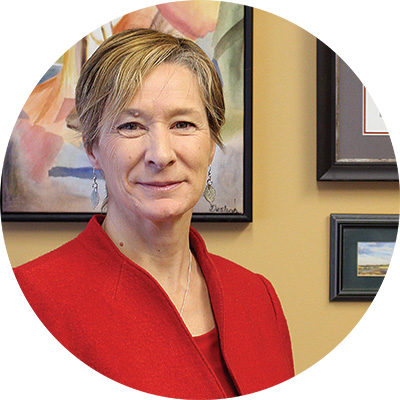 Dr. Josée Lavoie has been appointed the inaugural dean of the College of Community and Global Health, the sixth college encompassed by the Rady Faculty of Health Sciences.
Dr. Josée Lavoie has been appointed the inaugural dean of the College of Community and Global Health, the sixth college encompassed by the Rady Faculty of Health Sciences.
Lavoie is a professor of community health sciences, the department that has transitioned into the new college. She holds a PhD in health policy and financing from the London School of Hygiene and Tropical Medicine.
She has been a UM faculty member for 20 years. From 2017 to 2023, she was director of Ongomiizwin – Research, part of the Indigenous Institute of Health and Healing in the Rady Faculty.
She co-led the Canadian Institutes of Health Research-funded mentorship program called Prairie Indigenous Knowledge Exchange Network, or PIKE-Net.
A key focus of Lavoie’s research has been on improved access to primary health care for underserved and marginalized populations. She has conducted research in partnership with First Nations, Inuit and other Indigenous groups across Canada and internationally.
Symposium explores gender and sexual minority health
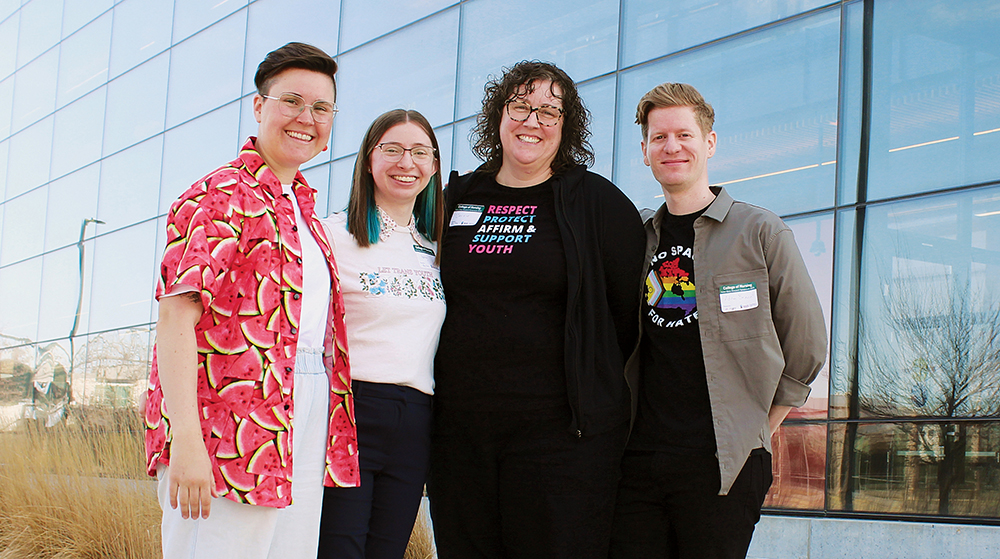
Research by graduate nursing students inspired the theme of this year’s Helen Glass Research Symposium, hosted by the College of Nursing on the Fort Garry campus in April.
The symposium’s planning was guided by four master’s students – Jess Crawford [MN/25], Ashley Bell [BN/19], Jennie MacMillan Gomez [B.Sc.(Pharm.)/96] and Adam Brandt – who have conducted nursing research focused on gender and sexual minority health.
“It’s essential that health professionals build their skills in gender inclusive and affirming care practices and conduct research aimed at systemic change,” said Dr. Marnie Kramer, assistant professor of nursing and chair of the three-day symposium.
Nearly 150 people attended the Helen Glass Lecture given by Dr. Athena Sherman, a leading transgender health researcher and nursing faculty member at Emory University in Georgia.
Sherman spoke about involving community in research related to gender and sexual minority health, and about being a queer researcher in today’s U.S.
Dental college holds screening clinics
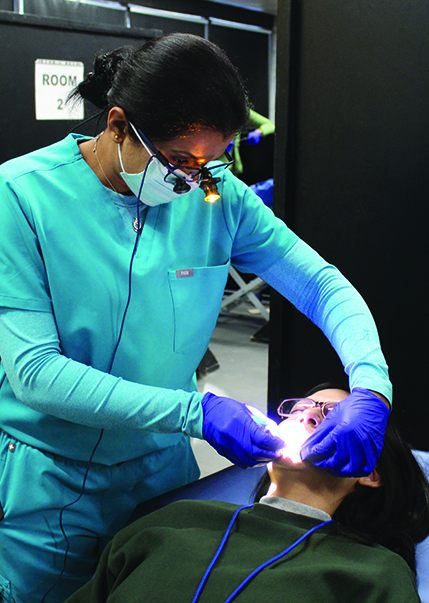
Oral pathologists from the Dr. Gerald Niznick College of Dentistry held one-day oral cancer screening clinics in October on the Bannatyne campus, and in March on the Fort Garry campus.
The free pop-up clinics were open to all. Faculty, staff, students and residents from the dental college helped to organize and operate them. More than 300 people were examined for signs of oral cancer.
“Our goal as a team is early diagnosis,” said Dr. Vimi Mutalik, associate professor of dental diagnostic and surgical sciences.
Dr. Mohamad-Hasan Kadhim [B.Sc./12], assistant professor of dental diagnostic and surgical sciences, said the clinics were highly successful pilot events. The team would like to hold similar pop-ups in rural Manitoba.
One goal of the clinics was to raise awareness of oral cancer, Kadhim said. “These cases can be asymptomatic … and you may not be aware that lesions are growing in your mouth.”
Another goal was to provide a service-learning experience for residents and students.
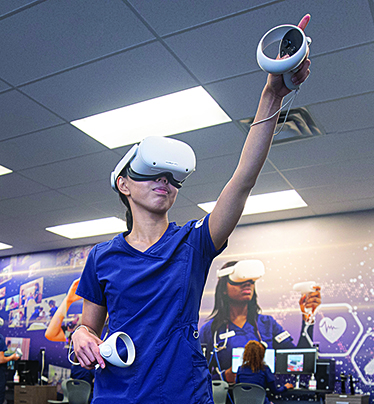 The team behind RadyVerse, the initiative to expand the use of virtual reality and artificial intelligence in health education at UM, won the 2024 SIM Innovator Award from Simulation Canada.
The team behind RadyVerse, the initiative to expand the use of virtual reality and artificial intelligence in health education at UM, won the 2024 SIM Innovator Award from Simulation Canada.
The team is led by Dr. Nicole Harder [BN/96, MPA/02], associate dean (undergraduate), professor of nursing and Mindermar Professor in Human Simulation, and Kimberly Workum, director, clinical competence assessment centre and digital strategy at the College of Nursing.
Harder also received the SIM Citizenship Award.
Professor emerita promotes equitable therapy
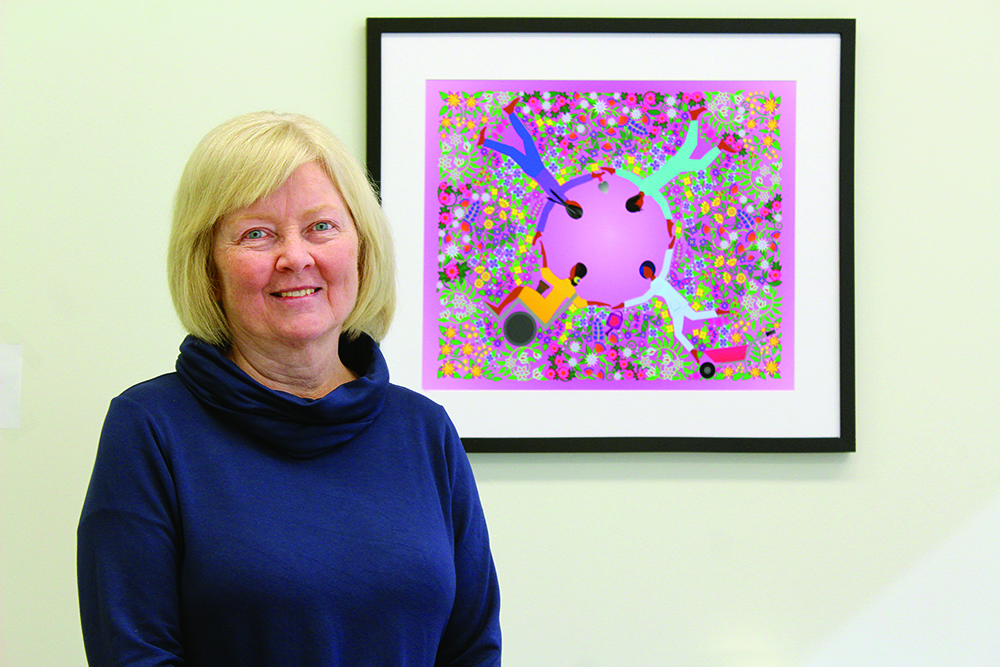
Gayle Restall [BMROT/79, PhD/10], professor emerita of occupational therapy (OT), has stayed active in her field since retiring in 2021.
Her current work aims to advance therapy practices that promote justice, equity and rights.
Occupational therapists “can unintentionally practise in ways that can be oppressive, particularly toward those who have been socially racialized, excluded and stigmatized,” she told UM Today.
In 2022, Restall published Promoting Occupational Participation: Collaborative Relationship-Focused Occupational Therapy, a textbook co-edited with Dr. Mary Egan of the University of Ottawa. The book has led to speaking engagements in Australia, New Zealand and Europe. “Dr. Egan and I emphasized … the unique position of Indigenous Peoples in Canada and the implications of the ongoing legacy of colonization,” Restall said.
In 2023, Restall received the Muriel Driver Memorial Lectureship Award from the Canadian Association of Occupational Therapists. In her lecture, she said, “I chose to talk about occupational therapists’ responsibilities to change the settler colonial structures … that create and perpetuate inequities and injustices.”
Student-led clinic welcomes first pharmacy intern
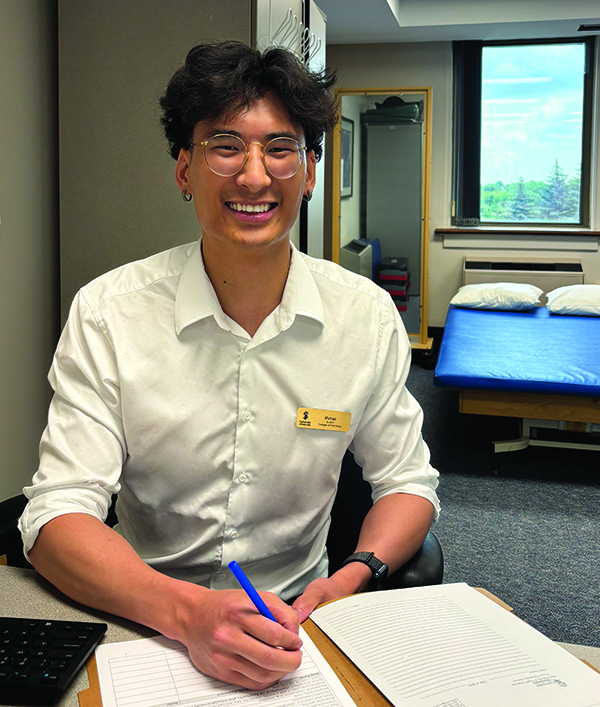
This spring, Michael Li became the first student from the College of Pharmacy to complete an experiential rotation at the Rady Faculty’s Student-Led Interprofessional Neuro Clinic, located at Riverview Health Centre.
The fourth-year student undertook an eight-week rotation at the Riverview site. In previous years, pharmacy students made only two-day visits to the clinic, working alongside learners from nursing and rehabilitation sciences.
Li worked directly with patients, performing medication reviews with a focus on neurological conditions such as Parkinson’s disease, multiple sclerosis and stroke.
“We learn a lot from each other,” he said about the interprofessional practice setting. “We see how different our programs are, and the overlaps we have.”
Li joined with two occupational therapy students to lead a workshop at the clinic on sleep hygiene (habits that promote good sleep).
“We’ll be giving tips on setting a sleep schedule, creating a bedtime routine, optimizing the sleep environment, and when to seek professional help,” he said. “We’ll also be comparing the effectiveness of sleep hygiene to pharmacological therapies.”
The College of Pharmacy plans to continue sending students to the clinic for rotations.
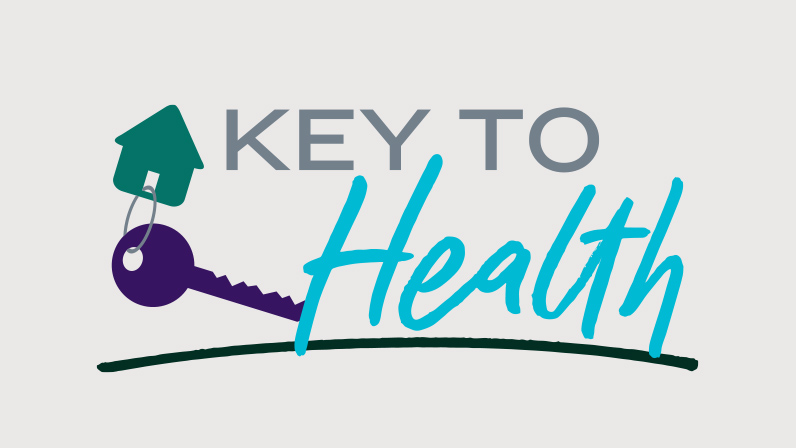 A single mother and her three children took ownership of a new home in Winnipeg’s Transcona neighbourhood at a “key ceremony” in March.
A single mother and her three children took ownership of a new home in Winnipeg’s Transcona neighbourhood at a “key ceremony” in March.
The four-bedroom townhouse resulted from the Rady Faculty’s latest “Key to Health” partnership with Habitat for Humanity Manitoba.
Nearly 60 Rady volunteers – students, faculty and staff – contributed labour to constructing the home during a five-day build project in June 2024.
The Rady Faculty also raised $100,000 for the project.
Medical alum calls for change to help doctors thrive
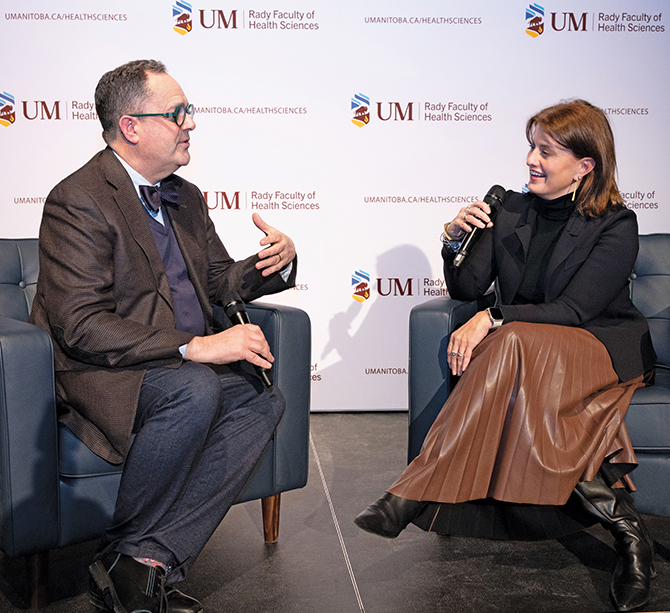
Today’s medical students are extraordinary individuals with great capacity to contribute as physicians, but the health-care system must change to support them, a distinguished medical alum said in February.
Kathryn Tinckam [B.Sc./93, B.Sc.(Med.)/97, MD/97], a kidney transplant specialist, is physician-in-chief at Toronto’s University Health Network and professor of medicine at the University of Toronto.
She was the guest speaker at the Max Rady College of Medicine’s 15th annual Teacher Recognition and Manitoba Medical Students’ Association Awards evening.
“What worries me is what we’re asking [of future doctors] in a world … where our health-care system is under strain [and] we’re seeing increasing rates of physician burnout,” Tinckam said.
“I want to make sure that we continuously challenge ourselves to redesign the system so they can be successful.”
Tinckam spoke highly of the UM medical college. “You are getting a phenomenal medical education,” she told the students in the audience.
“There is something very, very special about this medical school. It is big enough to have world-class science, world-class educators, some of the leaders in the field, but it’s small enough to connect students directly with those people.”
New resources available for clinical trials
UM has launched an Academic Contract Research Organization (aCRO) at the George & Fay Yee Centre for Healthcare Innovation (CHI).
This new unit in the Rady Faculty of Health Sciences will strengthen Manitoba’s capacity to lead and conduct human clinical trials. It will support the design and implementation of trials by investigators, research teams and pharmaceutical and bio-tech companies.
“Manitoba has a rich history of participating in clinical trials, but our ability to lead and sponsor investigator-initiated trials, particularly in complex regulatory environments, has been limited,” said Dr. Ryan Zarychanski [B.Sc./95, B.Sc.(Med.)/00], scientific director of CHI and professor of internal medicine.
Clinical trials are essential for testing the benefits and risks of drugs and other health-care innovations, the professor said.
Zarychanski said the aCRO can assist with everything from clinical trial design and regulatory submissions to data management and analysis – all while ensuring compliance with regulatory standards.
“Our vision is for investigators to be empowered,” he said. “We will work with clinical research teams so that patients have access to high-quality clinical trials, whether sponsored by the University of Manitoba or by our external clients.”
Nurse practitioner program expands
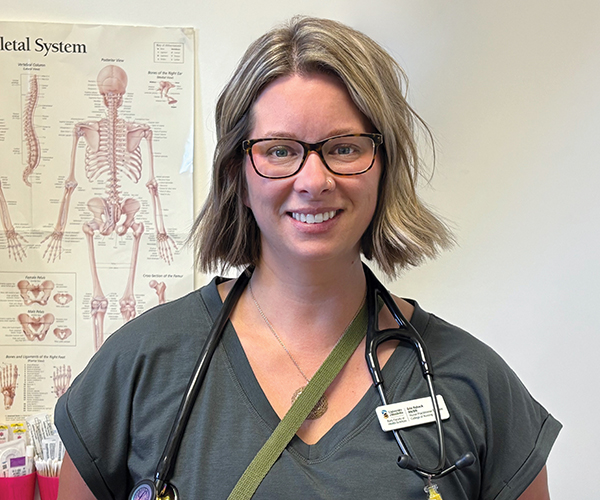
The College of Nursing is doubling the annual intake of its nurse practitioner (NP) program from 25 to 50 students this year.
Cheryl Olfert, senior instructor, said more than 150,000 Manitobans don’t have a primary care provider, and nurse practitioners can help to meet that need. NP is a master’s degree program that nurses can pursue either full or part time.
Applicants must have worked as a nurse for at least two years.
Starting in January 2026, the college will offer the program online to make it more accessible to rural and remote nurses across Manitoba. “There will still be labs and skills that need to be taught in person, but the majority of the coursework will be online,” Olfert said.
Erin Ryback is an NP student who lives in Brandon, Man., and has more than 16 years’ experience as a nurse. She aims to help address the rural shortage of primary care as a nurse practitioner. “Living here, I can see the need,” she said.
Jaypee Benitez Buhisan recently graduated as an NP. “The program builds on the foundational knowledge and skills we gained during our undergraduate education, along with the clinical experience we have developed,” he said.
Volunteers find rewards in dental mission
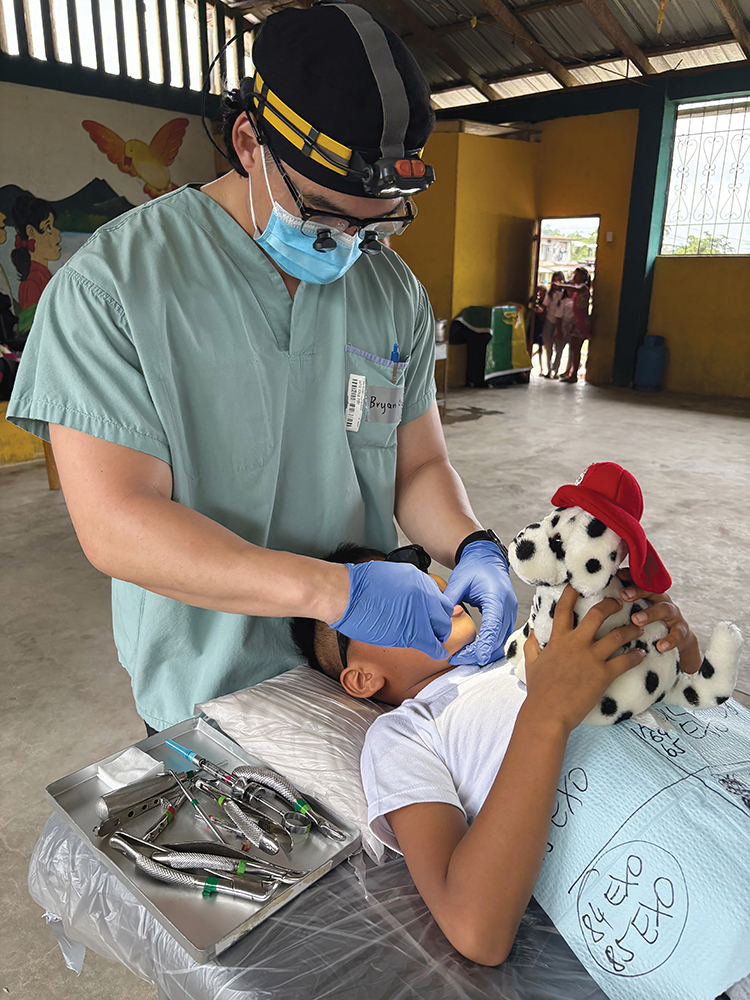
In March, fourth-year dental student Bryan Kwak [B.Sc. (Dent.)/25, DMD/25] and four classmates volunteered for a dental mission trip to Ecuador.
Noriko Boorberg [DMD/00, M.Ed./12], associate professor of restorative dentistry, and Tom Colina [DMD/89], clinical instructor, led the UM group. The trip was organized through the charitable organization Kindness in Action.
The UM team visited four communities in the Ecuador rainforest. They provided more than 80 cleanings, nearly 170 fillings and more than 220 extractions.
“It felt like everything I did in dental school – all the sweat, effort and time I put in – was worth it,” Kwak said. “It felt pretty amazing and rewarding at the end. It was incredible seeing patients smile and be happy.”
Boorberg recalled that she volunteered for her first dental mission as a fourth-year student at UM.
She has now completed 17 such trips.
“It changed my perspective,” Boorberg said. “I want my dentistry students to have the same experience – to give back globally to people in need.”
Grad student collects Métis patient stories
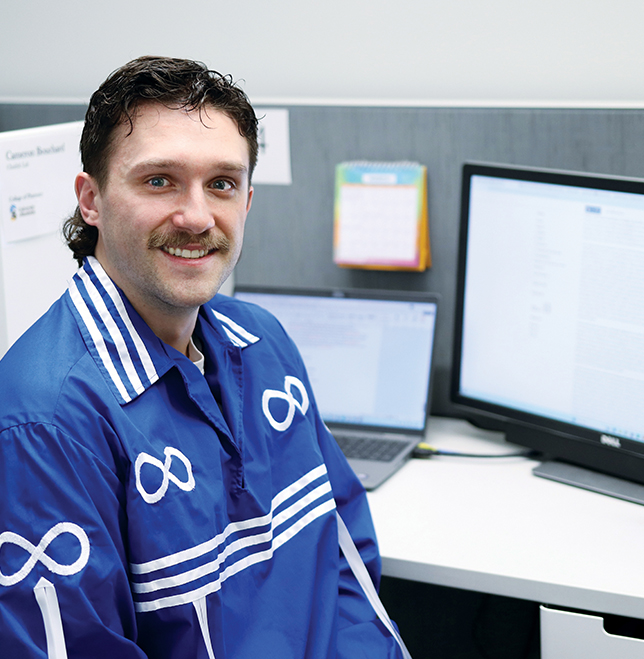
Cameron Bouchard, a Métis master’s student at the College of Pharmacy, is conducting what he believes is the first study of the health-care experiences of Manitoban Métis people with congenital heart disease.
To collect the data, Bouchard is using the Indigenous qualitative research method of sharing circles.
“We need distinct, culturally based Métis health research,” he told UM Today. “Métis patients will be involved, from the study design to the data analysis.”
People born with congenital heart disease require lifelong cardiac monitoring, Bouchard said. But roughly 30 per cent of all patients with the disease receive no cardiac care as adults.
Indigenous patients, who are already disadvantaged in the health system, are more at risk for this absence of care.
“A lot of times, Indigenous patients are blamed for not seeking followup care,” Bouchard said. The study will give participants a safe place to share their health-care experiences, he said.
Bouchard hopes his findings will demonstrate the research value of sharing circles and help to inform health-care decisions about the services that Métis patients need.
Awards empower Rady women as leaders
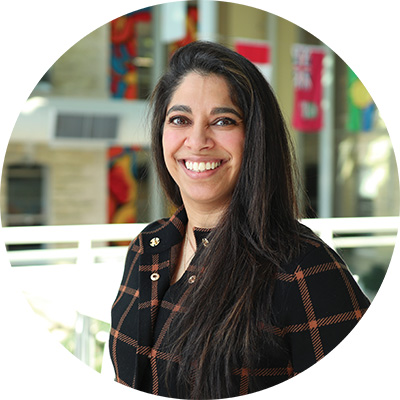
When people hear the word “surgeon,” many still picture a man, said Dr. Farhana Shariff, assistant professor of surgery.
And there are still biases that influence people’s perceptions of female surgeons, she said.
“If you’re seen as too nice, you’re often assumed not to be competent enough. If you exert authority, you may be seen as bossy and difficult.”
Shariff, a cancer surgeon, trains UM residents and leads the surgical standards committee at St. Boniface Hospital. She is one of 12 Rady women who recently received The Winnipeg Foundation Martha Donovan Women’s Leadership Development Awards.
Shariff is using her award funding to pursue a Women in Leadership certificate through Cornell University. Other recipients are taking leadership programs through universities such as Harvard and McGill.
The other faculty recipients are Dr. Devi Atukorallaya, associate professor, oral biology; Dr. Meaghan Jones, assistant professor, biochemistry and medical genetics; Dr. Jatinder Kaur, assistant professor, radiology and pharmacology/therapeutics; Dr. Kaarina Kowalec [B.Sc. (Hons.)/08, M.Sc./11], associate professor, pharmacy; Dr. Lisa Miller, assistant professor, internal medicine; and Barbara Rose-Lovett, instructor II, nursing.
The student recipients are Laila Aboulatta, pharmacy; Azam Asemi Rad, human anatomy and cell science; Anita Durksen [PhD/24], community health sciences; Mira Safa, pharmacy; and Ariel Wilcox, nursing.
Respiratory therapy student publicizes the profession
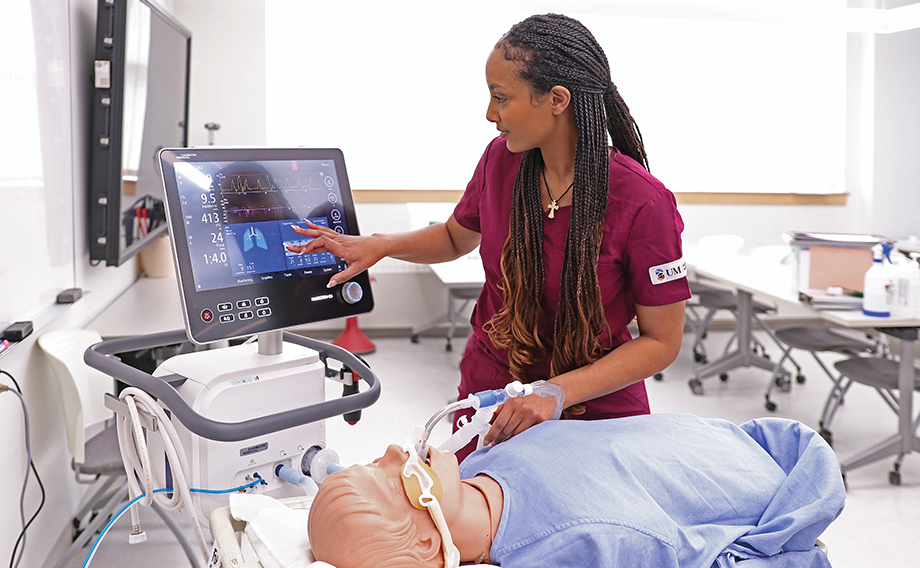
Wintana Mokonnen first heard the term “respiratory therapy” (RT) while volunteering as a teen at Health Sciences Centre. Today, the third-year RT student is a passionate advocate for the program at UM’s College of Rehabilitation Sciences, and for her future profession.
Mokonnen runs a student Instagram page to spread the word about the RT program. Many people aren’t aware of RT as a career, she told UM Today.
“We are such a big part of the health-care team. We’re highly trained in mechanical ventilation initiation and management, providing oxygen therapy, assisting in bronchoscopy, and advocating for our patients.”
Mokonnen said her clinical rotations have been highlights of her RT education. “When I was in Brandon for a week, I got to see a surgical tracheostomy – a surgical incision that is made in the neck to help patients breathe. I got to follow the patient from the ICU to the operating room and back.”
The Winnipeg-born student said she would love to work in a northern community. “It would be amazing to use my education … to give back to underprivileged communities,” she said.
Study shows high rate of Child and Family Services intrusion
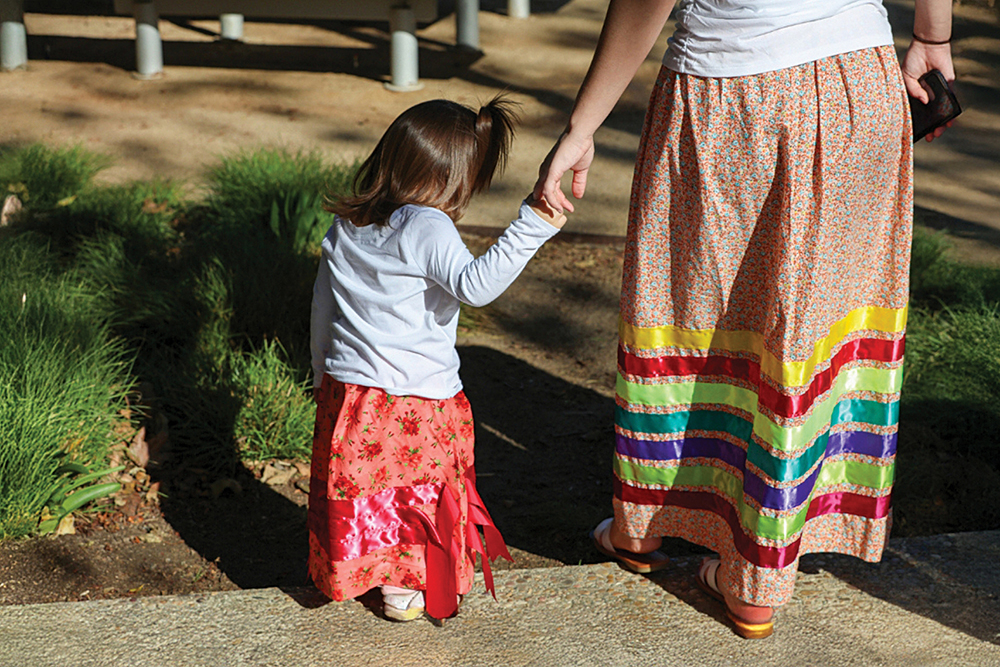 First Nations birthing parents in Manitoba experience much higher rates of contact with Child and Family Services (CFS) than non-First Nations birthing parents, a study by the Assembly of Manitoba Chiefs (AMC) and UM revealed.
First Nations birthing parents in Manitoba experience much higher rates of contact with Child and Family Services (CFS) than non-First Nations birthing parents, a study by the Assembly of Manitoba Chiefs (AMC) and UM revealed.
The study, led by Dr. Kathleen Kenny, a postdoctoral fellow in community health sciences, was published in April. The researchers studied anonymized government data for birthing parents who had their first child between 1998 and 2019.
The data revealed that 50 per cent of First Nations birthing parents had an open CFS file (a rate nearly four times that of non-First Nations parents) and 27 per cent of First Nations birthing parents experienced removal of one or more of their children (a rate nearly six times that of non-First Nations parents).
“Our research shows devastating levels of disruption and harm by CFS,” said Kenny.
“When half of all First Nations birthing parents have an open CFS file, that is not protection; it is systemic oppression,” said AMC Grand Chief Kyra Wilson [BSW/16].
The study’s recommendations include keeping First Nations families together through culturally based supports.
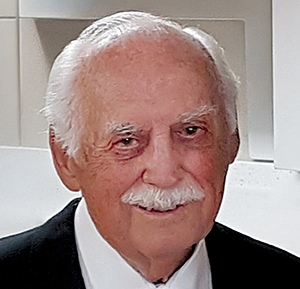 Dr. Sam Borden, an influential former professor at the Dr. Gerald Niznick College of Dentistry, passed away in September 2024 at the age of 101.
Dr. Sam Borden, an influential former professor at the Dr. Gerald Niznick College of Dentistry, passed away in September 2024 at the age of 101.
The Winnipeg-born Borden earned his dental degree at the University of Toronto. He served on the UM faculty from 1964 to 1989, holding positions such as head of periodontics.
The Dr. Sam Borden Periodontology Clinic at the dental college has been named in his honour since 2013.
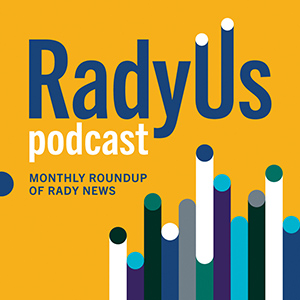 The Rady Faculty of Health Sciences Office of Communications & Marketing has launched a monthly podcast called RadyUS.
The Rady Faculty of Health Sciences Office of Communications & Marketing has launched a monthly podcast called RadyUS.
Available on Spotify, YouTube and Apple Podcasts, it will help you catch up on Rady headlines and meet our faculty, staff, learners and alumni who are making news.
